MONTESSORI ECO ACADEMY
At Montessori Eco Academy, we believe in the magic of hands-on learning in the great outdoors as well as in the classroom, where everyday is a new adventure filled with wonder and discovery. Join us as we immerse ourselves in the beauty of nature and ignite a lifelong love of learning.
Mission Statement
We strive to provide the ideal learning environment - an environment that nurtures the wonder that is inherent in learning new things.
Our community of learners are intrinsically motivated to think, experience and thrive.
Your child leads the way in their learning experience; this approach encourages your child’s individual spirit, while fostering creativity, empathy, as well as respect for and love of nature.
In our daily practice, we commit to fostering a deep connection with the natural world, inspired by the wisdom of those who have cared for this land long before us.
We devote ourselves to guiding your child on their journey to becoming positive, independent, open-minded, collaborative leaders and citizens of our world.
Land Acknowledgement
We acknowledge that the land on which we gather, learn, and grow at Montessori Eco Academy is the traditional territory of the Anishinaabeg, the Haudenosaunee, the Lunaapeew, and the Attawandaron peoples.
This land, located in the region now known as Chatham-Kent, has been a place of gathering, teaching, sharing, and nurturing for countless generations.
We honour the enduring presence and deep connection that these Indigenous peoples have to this land, and we recognize and extend our heartfelt gratitude for their stewardship and care for the natural environment that continues to this day.
As we engage with the natural world in our learning, we commit to fostering a deeper understanding of these connections, respecting the history, and walking forward in a spirit of reconciliation and partnership with all who share this land.
Our Team
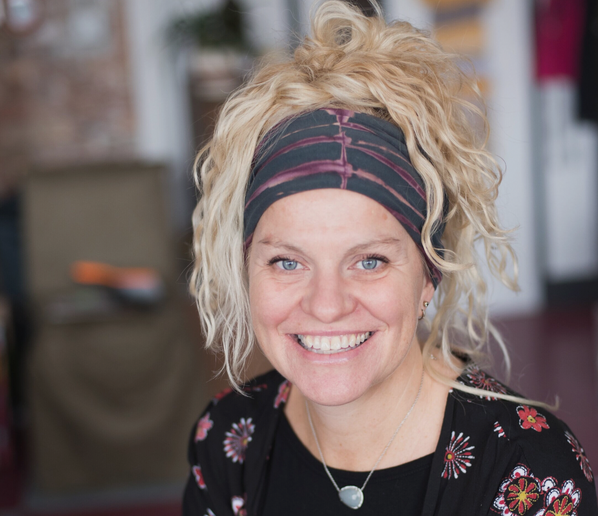
Meg Dunlop - Founder/Director
Meg brings years of extraordinary connections with kids and youth, and certified Montessori training to Montessori Eco Academy. She is also trained in the Arrowsmith Program – a cognitive training program for students that originated in Toronto and is now a global movement for retraining the brain.
The autonomy inspired by the Montessori methodology is what drew Meg into the program and keeps her coming back for more. Whether the child is in a classroom or outside, they learn who they are individually. Meg’s background in Montessori is integral to the philosophy at Montessori Eco Academy. For Meg, the Montessori approach is the spark through which a lifelong love of learning is ignited.
Meg’s personal goal is that she is a tolerant, free-thinking, creative, fulfilled, empathetic, kind and caring citizen of the world. She has that same wish for your child.
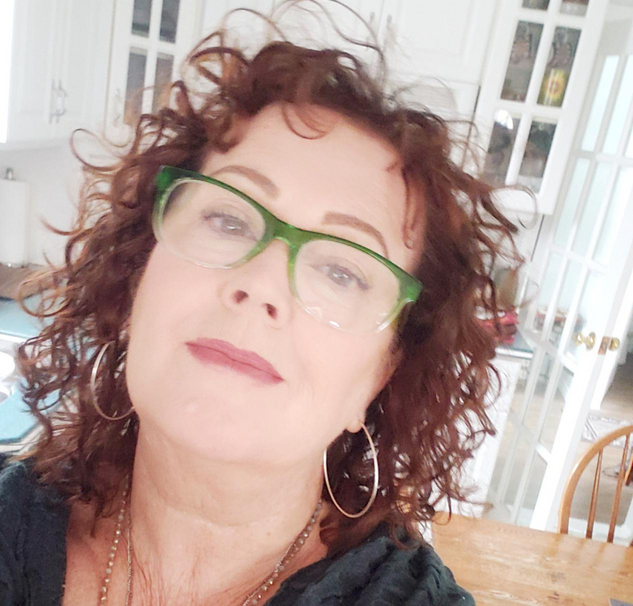
Julie Ross
Ju-Ju Bean as the children like to call her, is a multi-instrumentalist, a stunning singer and a talented visual artist and now an incredible part of the Montessori Eco Academy team! Julie has been a mainstay in the Chatham-Kent music scene for over 30 years. Whether playing gigs, teaching music lessons or facilitating Songcircle – her amazing songwriting workshop and showcase for local musicians - Julie has a presence and energy that the children adore! If you don’t know this local legend, please check her out at www.julieross.ca
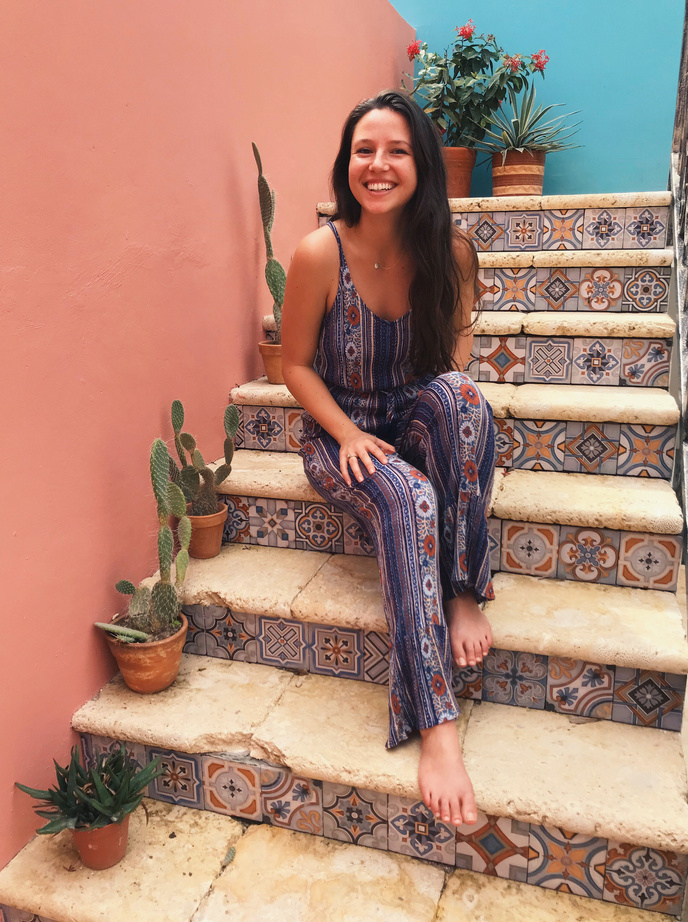
Lauren Uher
Lauren attended her first ever yoga class at the age of 9. Since then, yoga has been a part of her life in one way or another, whether attending classes, teaching in studios or schools, hosting virtual retreats, or guiding little ones in her mindfulness classes.
In university, courses on Buddhism and Hinduism deepened her love, appreciation and knowledge for the ancient practice of yoga a meditation.
Lauren is now a registered Social Worker in the field of children’s mental health, and often incorporates yoga philosophy into her work with kids and youth, including movement, breath work, and mindfulness. Lauren has completed her 200 Hour Yoga Teacher Training as well as Level 1 and Level 2 of Trauma-informed Yoga Therapy Training.
Teaching for the kids at Montessori Eco Academy is a dream come true for Lauren! Montessori Eco Academy provides the space and freedom for children to listen and connect to their mind, body and spirit, and Lauren is so grateful to be a part of this!
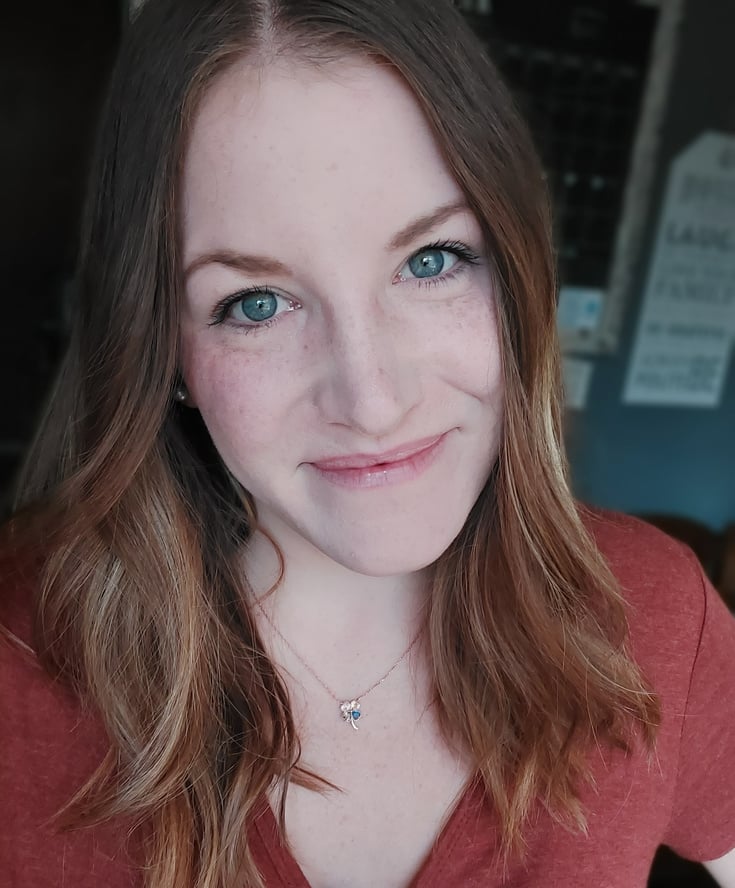
Tiffany McNear
Tiffany has always had a passion for education and grew up in a family who loved the outdoors, it only seemed right to blend these two interests together.
Throughout her young adulthood Tiffany would spend summers camping with her family, attending Girl Guides, volunteering at day camps and community events. As an adult she worked at the Canadian Transportation Museum and Heritage Village (Kingsville, ON.) as well as the Chatham-Kent Children's Safety Village. All of which helped to cultivate Tiffany's passion for education and helping our youth thrive.
After graduating with an undergraduate in English Language and Literature at the University of Windsor, she furthered her thirst for knowledge by graduating with a Bachelors in Education. During her time as a teaching assistant she became inspired by the various styles of learning, and how each can help children flourish. She went on to take multiple practitioner courses in Forest Schools from Guelph to Windsor, as well as teaching Montessori in Chatham-Kent.
Tiffany believes in cultivating an environment of learning that allows children to express themselves fully. She believes in creativity, kindness, endless curiosity, and inspiring an adoration for the pursuit of knowledge.
Frequently Asked Questions
I understand that learning is child-led through their curiosity, but is there any curriculum in place to guide the learning? How do you ensure the children are learning enough in the core subjects that they will be well prepared for high school when they will likely return to a more structured learning environment? I understand you don't have formal testing, but how are children then prepared to face this challenge when they re-enter more conventional education?
Many people have these same concerns about such a different approach to education. It can be daunting to consider something so different when so many of us went through the public education system and were taught to believe that is the only way. Even when we know that we want something different for our own children it can be hard to consider something so different from what we have grown up with.
The fact is though that the Montessori method and Montessori classrooms have been around for over 100 years and there are some very successful Montessori graduates — the inventors of Google to name a couple.
The learning in a Montessori classroom is child-led and the goal is to have the child feel very engaged in the classroom environment. This does not mean that as teachers we are not guided by the elementary curriculum, we are. The difference is that rather than forcing those lessons on an entire group of children who may or may not be ready for them, we consider the individual child and when and how to present those lessons. We often teach our students concepts and lessons without them even realizing that they are learning them- and more often than not, these learning experiences go beyond the skills that they would be learning in their public school, age-restricted classroom.
For example, every year our students launch their own small business. They are tasked with marketing, creating inventory, learning about the cost of materials and the value of their time when considering pricing their items. They learn about money and how to make change, how to use grace and courtesy when they speak to potential customers, and they are scheduled for and actually work shifts at their own Christmas market shop. Children as young as four years old take part in this project and that is definitely well beyond the provincial curriculum for that age group.
The lessons in this group project abound — many subject areas are covered but the kids don’t consider that because they are so excited about making posters, counting real ,money and making things for their shop! This is a great example of Montessori education. We take a look at how to turn everything into a lesson, ( including a child’s interests, not just teacher-planned group projects), and incorporate as many subject areas of the curriculum as we can, and doing it in a way that doesn’t feel like such a chore for the students. We liken it to sneaking zucchini into brownies — the kids are so excited about the yummy brownies, they don’t notice the zucchini that we sneak in there so that they’re still getting something that is good for them. Sometimes kids who transition into Montessori are so accustomed to work sheets and sitting in a desk all day to learn, that they don’t even realize how much they may have actually learned in a day, but they are learning!
As far as the core subjects go - Math and Language - those lessons are also presented to the students individually and one-on-one with their teachers. We teach the lesson and introduce the materials and the student can go back to that lesson and work on it as often as they need to until they feel that they are comfortable with the concept. This is another way that our school fosters independence and allows student choice which results in increased interest and engagement in the classroom. As teachers, we observe the children and take note of how they are doing with a certain lesson and ascertain whether or not we need to revisit that concept or whether it is time to move on to the next challenge. We also take note of whether a student is avoiding a certain lesson and adjust accordingly. Perhaps that lesson requires more work with the teacher to increase the child’s confidence.
The goal at our school is to create an environment where children feel safe, supported and confident in their learning journey and to instill a lifelong love of learning. We do not use report cards as we want our students to feel comfortable with asking questions and free to answer questions without fear of judgement if their answer is wrong. We don’t want children to feel less than about themselves if a classmate gets higher grades than they do. For a few children, that can be motivating, for many it is defeating. Students might feel that they are “not smart “or “not good at” certain subject areas when in fact they may just need to learn a concept a different way. We do believe the concept of Multiple Intelligences is valid and we believe that our school and the way that we teach lends itself well to teaching children who’s strengths and abilities to flourish may lie in an approach other that a one-size-fits-all education.
Our belief is that if we can create learning opportunities that foster a positive attitude towards education, that positive attitude will carry them through the challenges of high school; that if a child is excited about learning , they will be excited about the challenge of high school subjects and even testing when they are older and more mature and ready to accept those challenges. Montessori education encourages free thinking , creativity and the ability to learn independently — all qualities that serve a student well in high school and particularly well in post secondary education.
If you don’t have report cards and tests, how do I know my child is learning?
You will know the same way your child knows - they will show you. They will feel engaged and excited about their learning and will want to share it with you! That’s the joy of working at their own pace - they choose the path they wish to follow and the goals they wish to achieve. We give them the space and guidance they need. No rote or memory work – unless that’s one of your child’s goals. No practice sheets or tests, because your child will show what they know. No learning-something-for-that-unit and forgetting it after the test. Does your child want to memorize multiplication tables? Great! Learn more about the solar system? Awesome! Study a choreographer and create and perform a dance routine? Fantastic! Parents will be given the time to come into the school and have their child show them what they’ve been up to. This facilitates ownership in their goal setting, motivates their work ethic and instills accountability and pride. This approach instills in our students a desire to strive to achieve their goals and an appreciation for the satisfaction gained by diving in deeply and following their passions.
Report cards, as we have participated in creating, are full of jargon that typically
don’t tell parents much about what kids are really doing every day. Most of us really want to know that are children are kind, caring, contributing members of their classroom and good citizens for their school community. We will communicate the great things your child is doing regularly. We won’t need to wait for a report card to communicate with you about your child.
How much time will the kids spend outside?
As we have learned from Scandinavian schools, research and how we all managed during the recent global pandemic, children thrive when they are outside. This means when it’s hot, the kids will be outside. When it’s cold, the kids will be outside. When it’s rainy, muddy, foggy … As long as it is safe to be outside the kids will be encouraged to be outside. There is so much to learn from nature in all different kinds of weather. As the Scandinavian philosophy goes – “ There’s no such thing as bad weather, only bad clothes!” Appropriate outdoor gear is essential. The Montessori Eco Academy school supply list looks considerably different from the ones you may be used to. Rather than a rainbow of duotangs, we ask that you bring things like lots of extra waterproof mittens and that you always have a dry backup pair of snowpants on hand!
Is There a Uniform?
No. We want your child to feel free to wear what they’d like. Personal clothing style is a form of self -expression and we want our students to feel free to express themselves. Please know that their clothes can get messy – thrift stores are going to be your friend! *;)
Kids need to do things they don’t want to do. That’s life, isn’t it?
We all have to do things sometimes that we don’t want to do. These tough things are easier to tackle when we know are hearts are nurtured and we feel grounded and calm. The things that kids typically don’t want to do typically come up after they have had to sit too long, or behave a certain way for too long – and each child’s opinion of “too long” can vary greatly. Children naturally love to learn new things. If they know that they can move around and take as many breaks as they need while learning, it’s easier for them to stay excited about learning. Montessori Eco Academy is the space where the tough stuff is enjoyable because it’s done in the way that your child learns best.
Where was this when I was growing up?
It existed. We didn’t invent outdoor education. We are bringing it to Chatham-Kent and to your children because we have seen the amazing things that it does for children all around the world. Weaving outdoor education in with the Montessori method is such a natural fit. We feel that this is a winning combination for our students.
Isn’t Montessori school just for little kids?
This is a common misconception! Many who have heard of Montessori schools have only heard of them as an alternative for young children to attend rather than a traditional day care. The Montessori philosophy is based on a comprehensive educational approach from birth through adulthood. In fact, there are many Montessori schools in surrounding areas such as Windsor, London and Toronto for example who offer a full education option from infants all the way to 8th grade. There are even Montessori High schools in some cities. We are the only school in Chatham-Kent offering the Montessori Elementary Program. Offering it in conjunction with Outdoor Education is what makes us truly unique!
Should I register my child for the Full-Time or part-time Program?
This is a question only you and your family can answer. It may be helpful to consider the differences between the two programs before making that call. Our full time program allows your child to become fully immersed in the Montessori Eco Academy experience. They will be there every day, partaking in all that we have to offer. Montessori Eco Academy is where our full time students work on everything to do with their education with us. We will work on their language and Math skills while also nurturing their love and respect for the natural world. The part-time program will focus mainly on the outdoor education component of Montessori Eco Academy. Essentially , our part time students will still be attending school and developing their academic skills elsewhere for the bulk of the week and will attend Montessori Eco Academy once or twice per week to get their Outdoor Education fix. The part-time program is a great option for those families who might not feel that they are quite ready to pull their kids out of a traditional school entirely but would like them to reap the benefits that time spent at Montessori Eco Academy can offer.
Am I “allowed” to have my child miss school once or twice a week to attend Montessori Eco Academy’s Part-time program?
The simple answer is yes. You have the right to choose how your child spends their time and if you feel that spending one or two days a week outside would be beneficial for them then go for it! Children are permitted to miss school for extracurricular sports and music lessons, this would be considered an extra-curricular activity. As we know, time spent doing extra-curricular activities is time well spent – it nurtures our heart, lifts our spirits and feeds our soul. This extra-curricular activity may very well result in more focused time when your child is still in the classroom at their full time school, as they know that at least one day per week they will have the freedom to move, roam and explore!
Still have questions? Email us at montessoriecoacademy@gmail.com
Recommended Reading
There's No Such Thing as Bad Weather: A Scandinavian Mom's Secrets for Raising Healthy, Resilient, and Confident Kids
by Linda Akeson McGurk
When Swedish-born Linda Åkeson McGurk moved to Indiana, she quickly learned that the nature-centric parenting philosophies of her native Scandinavia were not the norm. In Sweden, children play outdoors year-round, regardless of the weather, and letting babies nap outside in freezing temperatures is common and recommended by physicians. Preschoolers spend their days climbing trees, catching frogs, and learning to compost, and environmental education is a key part of the public-school curriculum. In the US, McGurk found the playgrounds deserted, and preschoolers were getting drilled on academics with little time for free play in nature. And when a swimming outing at a nearby creek ended with a fine from a park officer, McGurk realized that the parenting philosophies of her native country and her adopted homeland were worlds apart.
Struggling to decide what was best for her family, McGurk embarked on a six-month journey to Sweden with her two daughters to see how their lives would change in a place where spending time in nature is considered essential to a good childhood. Insightful and lively, There’s No Such Thing as Bad Weather is a fascinating personal narrative that illustrates how Scandinavian culture could hold the key to raising healthy, resilient, and confident children in America.
Free to Learn: Why Unleashing the Instinct to Play Will Make Our Children Happier, More Self-Reliant, and Better Students for Life
By Peter Gray
In Free to Learn, developmental psychologist Peter Gray argues that in order to foster children who will thrive in today's constantly changing world, we must entrust them to steer their own learning and development. Drawing on evidence from anthropology, psychology, and history, he demonstrates that free play is the primary means by which children learn to control their lives, solve problems, get along with peers, and become emotionally resilient. A brave, counterintuitive proposal for freeing our children from the shackles of the curiosity-killing institution we call school, Free to Learn suggests that it's time to stop asking what's wrong with our children, and start asking what's wrong with the system. It shows how we can act -- both as parents and as members of society -- to improve children's lives and to promote their happiness and learning.
Balanced and Barefoot: How Unrestricted Outdoor Play Makes for Strong, Confident, and Capable Children
By Angela J. Hanscom
In this important book, a pediatric occupational therapist and founder of TimberNook shows how outdoor play and unstructured freedom of movement are vital for children’s cognitive development and growth, and offers tons of fun, engaging ways to help ensure that kids grow into healthy, balanced, and resilient adults.
Today’s kids have adopted sedentary lifestyles filled with television, video games, and computer screens. But more and more, studies show that children need “rough and tumble” outdoor play in order to develop their sensory, motor, and executive functions. Disturbingly, a lack of movement has been shown to lead to a number of health and cognitive difficulties, such as attention deficit/hyperactivity disorder (ADHD), emotion regulation and sensory processing issues, and aggressiveness at school recess break. So, how can you ensure your child is fully engaging their body, mind, and all of their senses?
Using the same philosophy that lies at the heart of her popular TimberNook program—that nature is the ultimate sensory experience, and that psychological and physical health improves for children when they spend time outside on a regular basis—author Angela Hanscom offers several strategies to help your child thrive, even if you live in an urban environment.
Today it is rare to find children rolling down hills, climbing trees, or spinning in circles just for fun. We’ve taken away merry-go-rounds, shortened the length of swings, and done away with teeter-totters to keep children safe. Children have fewer opportunities for unstructured outdoor play than ever before, and recess times at school are shrinking due to demanding educational environments.
With this book, you’ll discover little things you can do anytime, anywhere to help your kids achieve the movement they need to be happy and healthy in mind, body, and spirit.
Braiding Sweetgrass: Indigenous Wisdom, Scientific Knowledge and the Teachings of Plants
By Robin Wall Kimmerer
As a botanist, Robin Wall Kimmerer has been trained to ask questions of nature with the tools of science. As a member of the Citizen Potawatomi Nation, she embraces the notion that plants and animals are our oldest teachers. InBraiding Sweetgrass, Kimmerer brings these two lenses of knowledge together to take us on “a journey that is every bit as mythic as it is scientific, as sacred as it is historical, as clever as it is wise” (Elizabeth Gilbert).
Drawing on her life as an indigenous scientist, and as a woman, Kimmerer shows how other living beings—asters and goldenrod, strawberries and squash, salamanders, algae, and sweetgrass—offer us gifts and lessons, even if we've forgotten how to hear their voices. In reflections that range from the creation of Turtle Island to the forces that threaten its flourishing today, she circles toward a central argument: that the awakening of ecological consciousness requires the acknowledgmentand celebration of our reciprocal relationship with the rest of the living world. For only when we can hear the languages of other beings will we be capable of understanding the generosity of the earth, and learn to give our own gifts in return.
Last Child in the Woods: Saving Our Children From Nature-Deficit Disorder
By Richard Louv
The Book That Launched an International Movement
“I like to play indoors better ’cause that’s where all the electrical outlets are,” reports a fourth grader. But it’s not only computers, television, and video games that are keeping kids inside. It’s also their parents’ fears of traffic, strangers, Lyme disease, and West Nile virus; their schools’ emphasis on more and more homework; their structured schedules; and their lack of access to natural areas. Local governments, neighbourhood associations, and even organizations devoted to the outdoors are placing legal and regulatory constraints on many wild spaces, sometimes making natural play a crime.
As children’s connections to nature diminish and the social, psychological, and spiritual implications become apparent, new research shows that nature can offer powerful therapy for such maladies as depression, obesity, and attention deficit disorder. Environment-based education dramatically improves standardized test scores and grade-point averages and develops skills in problem solving, critical thinking, and decision making. Anecdotal evidence strongly suggests that childhood experiences in nature stimulate creativity.
In Last Child in the Woods, Louv talks with parents, children, teachers, scientists, religious leaders, child-development researchers, and environmentalists who recognize the threat and offer solutions. Louv shows us an alternative future, one in which parents help their kids experience the natural world more deeply—and find the joy of family connectedness in the process.
Vitamin N: The Essential Guide to a Nature-Rich Life
By Richard Louv
Vitamin N is a one-of-a-kind, comprehensive, and practical guidebook for the whole family and the wider community, including tips not only for parents eager to share nature with their kids but also for those seeking nature-smart schools, medical professionals, and even careers. It is a dose of pure inspiration, reminding us that looking up at the stars or taking a walk in the woods is as exhilarating as it is essential, at any age.
Tuition
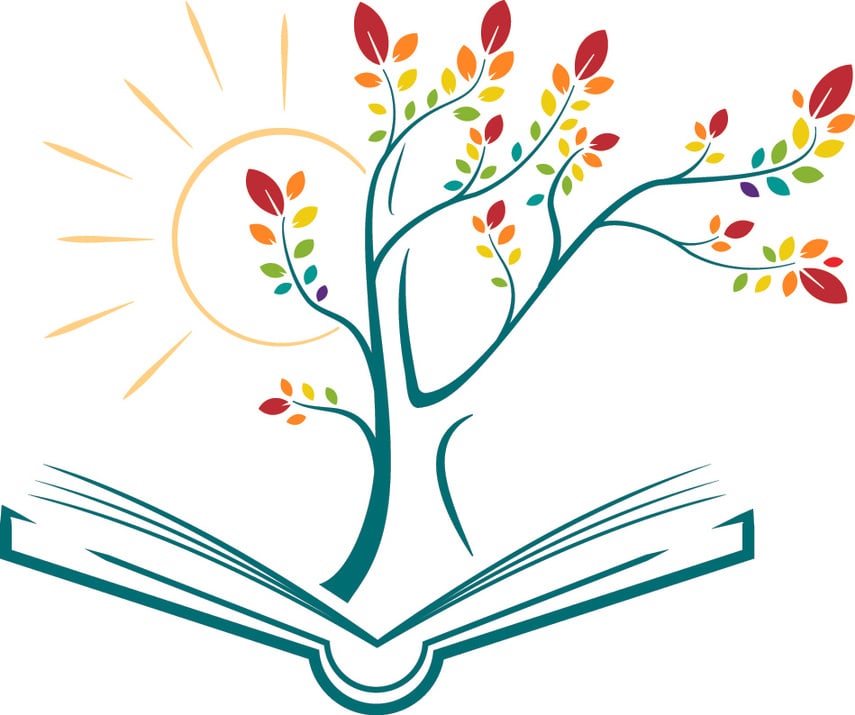
Full-time Program Tuition (per child)
$1065.00/month
Part time Program Tuition (per child)
1 day per week $300/month
2 days per week $600/month
3 days per week. $900/month
Registration Fee: $975 per family*
Activities Fee: $500 per student per year
*non -refundable
Tuition payments are due the 1st of each month beginning September 1st and ending June 1st of each school year.
Registration and Activities fees are due upon enrolment in Full Time and Part Time Programs.
Contact Us

Reach out to us by email at montessoriecoacademy@gmail.com
See what we’re up to, connect with us on social media!
